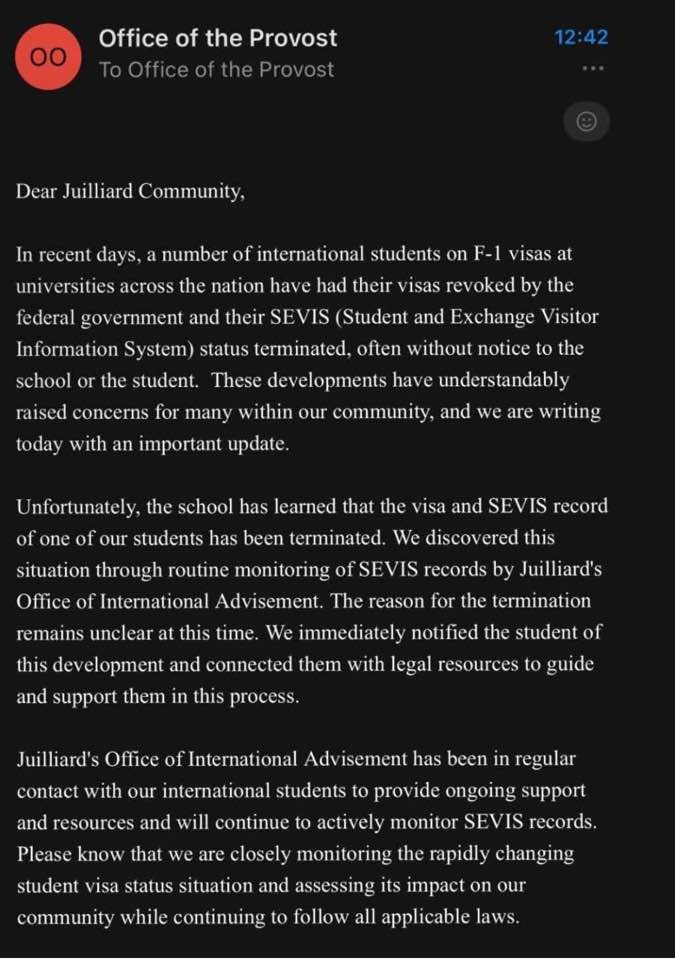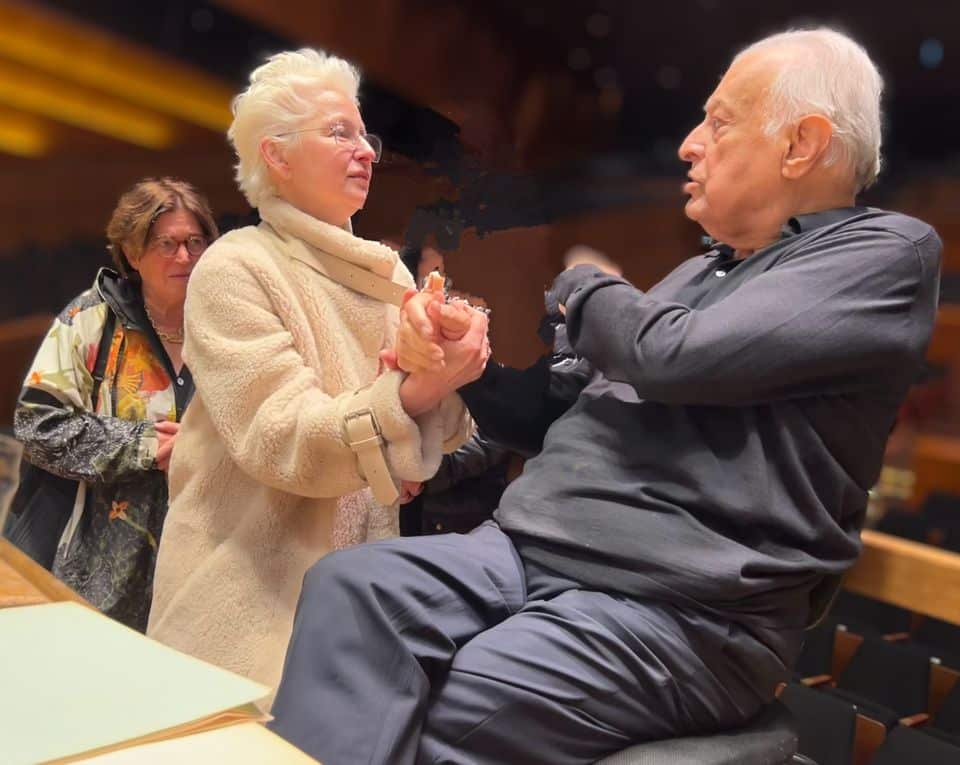Dutch regret misconduct by Ukrainian opera director
OperaVery long statement today by Dutch National Opera. Worth reading more for tone than content.
On Saturday, 26 October, Het Parool published an article about the behaviour of guest director, Andriy Zholdak, during the production period of the opera Fidelio at Dutch National Opera. Several important aspects were insufficiently addressed in this article. We therefore provide further clarification below.
Situation
During the production period of Fidelio, there was indeed unacceptable and inappropriate behaviour and misconduct by guest director Andriy Zholdak. This included impulsive, unreasonable, inconsistent, and/or intimidating behaviour, as well as physical contact during rehearsals without prior consent. We acknowledged this and took appropriate action.
Zholdak was not employed by Dutch National Opera but was hired solely as a guest director for the production of Fidelio. The rehearsal period lasted approximately seven weeks, concluding with the premiere on 5 June 2024. This was our first, and now our last, collaboration with him; Zholdak will not be invited back for future collaborations with us.
Actions Taken
Throughout the production process, Zholdak was repeatedly addressed by our staff regarding his problematic approach and inappropriate behaviour. Despite these warnings, his behaviour persisted. An incident also occurred during an ensemble rehearsal: while demonstrating a scene to an extra, in the presence of other artists and staff, he touched her hip/buttocks without seeking prior consent as required by our protocol. The extra subsequently filed a formal report of misconduct.
This incident prompted us to take decisive measures. Initially, we denied Zholdak access to the theatre, providing space to hold discussions with all principal cast members, extras, and directly involved production staff. Our goal was to gain a comprehensive understanding of the situation and determine whether they wanted to proceed and, if so, what they needed to complete the production safely.
Based on these conversations, we informed Zholdak that continuing the rehearsal process would only be possible under strict conditions: he could no longer directly rehearse with singers and extras, could only relay instructions through the assistant director, and, a member of the direction team had to be present at all rehearsals. Additionally, we required that he apologise to the artists and directly involved production staff for his behaviour.
The director accepted these conditions. Had he not done so, we would have stopped the production process and cancelled the Fidelio.
Under these conditions, rehearsals resumed, which was also the wish of the artists and directly involved production staff—they wanted to see the production through to its premiere. One artist, the aforementioned extra, held a different view and withdrew from the production.
In addition to these measures above, we decided to initiate an independent external investigation in response to the complaint from the extra. After initially agreeing to participate, she later withdrew her cooperation. As her cooperation was essential for a balanced outcome, we chose not to proceed with the investigation.
We offered the extra immediate support and provided full financial compensation, including for all performances. We are aware that she subsequently filed charges against Zholdak. The Parool article states that four witnesses were heard, and that the Public Prosecution Service has decided not to pursue prosecution, citing that, according to witnesses, there was “no sexual context.”
Background
Through our extensive industry networks, we endeavour to gather comprehensive information about the artists we engage. We were aware of Zholdak’s unconventional, improvisational approach to opera creation and were prepared for this. However, we were not aware of the earlier controversies around Zholdak mentioned in the Parool article at the time we hired him. These included remarks in 2016 in Romania, an incident with an actress in Hungary in 2017, and a protest action by actors in 2023. We have learned from this experience to be even more meticulous in our preliminary research.
Culture at Dutch National Opera
We deeply regret that some artists and staff members felt unsafe or uncomfortable in this production due to Zholdak’s rehearsal methods and approach. His methods and communication style do not align with the way we operate at Dutch National Opera.
Our discussions and actions are part of a culture that holds individuals accountable for their behaviour, according to our code of conduct, and takes corrective measures when needed.
This culture also entails learning from such events. For example, it raises questions about whether, and how, we can intervene or make adjustments earlier or more effectively if issues arise during a rehearsal process. We are currently evaluating these questions with the staff involved to further improve our ways of working and protocols. Supporting a culture of safety and well-being remains a critical focus within our organisation.






Comments